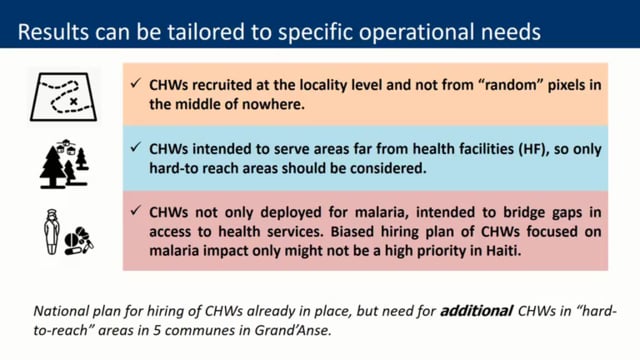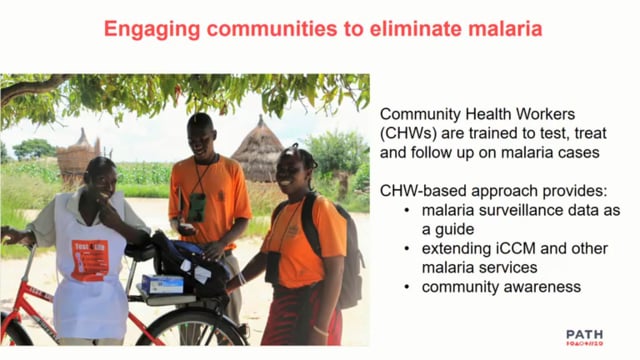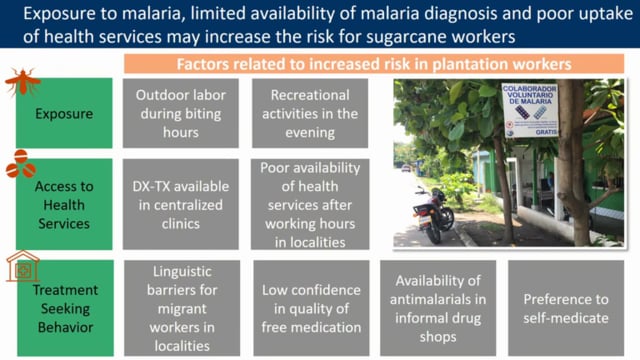ASTMH 2018: Session 130 “Moving Beyond Passive Case Detection: Evidence-Based Approaches to Planning and Implementing Active Surveillance Strategies in Malaria Elimination Settings”
Published: 18/12/2018
THEMES: THEMES: Modeling | Surveillance | Vulnerable Populations
MESA Correspondents bring you cutting-edge coverage from the 67th ASTMH Annual Meeting
Session 130: “Moving Beyond Passive Case Detection: Evidence-Based Approaches to Planning and Implementing Active Surveillance Strategies in Malaria Elimination Settings “
It is well recognised that malaria transmission can be better understood and then reduced, with strong surveillance systems and enhanced case detection in the setting of a strong health system. In view of this, the need to extend and strengthen surveillance and case management at the community level has been highlighted by the Global Technical Strategy and national malaria programmes. This symposium aimed to describe malaria case detection and management in elimination settings, and discuss the importance of active surveillance strategies as the stimulus to response, by presenting examples where data is used to extend access to health services.
Emilie Pothin discussed the use of mapping and mathematical modelling to inform the optimal deployment of community health workers in Haiti. Modelling is being used to help prioritize where community health workers should be deployed in order to have the maximum impact. By combining different data sources, a map of the predicted number of untreated cases can be built, in order to prioritize the catchment areas where community health workers can be placed to bridge the gaps in access to services. She concluded that this methodology can also serve as a platform for integrated health services and surveillance.
Marie-Reine I. Rutagwera shared her experience in Zambia of engaging communities to eliminate malaria. As part of the country’s efforts to achieve elimination, community health worker-based malaria case management and surveillance is being deployed, drastically reducing the distances that patients have to travel to access care. In addition, all the positive malaria cases detected through passive surveillance are actively followed at the community level by testing and treating the family members and neighbours of the index cases. After the deployment of these interventions, malaria incidence has dropped considerably and in 2017, 61% of confirmed malaria cases were identified by community health workers. One of the lessons learned from this initiative is that in areas with few remaining cases, integration of activities at the community level is vital to retain vigilance and readiness for rapid response in case of resurgence.
Graziella Scudu presented a strategy implemented by the Ministry of Health of Guatemala in collaboration with the sugarcane corporate sector to increase the coverage of case management and surveillance for high-risk populations. The Ministry of Health has trained additional health workers in malaria diagnosis, treatment and reporting, to extend the malaria surveillance and case management to the plantations. Health service delivery strategies have also been improved thanks to nurses, mobile clinics, and information, education and communication activities. After the deployment of this strategy, improved surveillance has been observed, as well as better access to treatment and adherence. In addition, passive surveillance data has been used to identify high-risk populations and further deploy targeted active case detection. After analysing all the data, the Ministry of Health and the private corporate sector have recognised the value of these activities and will implement this strategy to strengthen case detection in additional sugarcane plantations.
Chair and Co-Chair: Darlene Bhavnani (Clinton Health Access Initiative, Panama) and Richard Steketee (PMI)
This report was written by Maria Tusell on behalf of Richard Steketee with editorial support from Professor Graham Brown.
Published: 18/12/2018
THEMES: Modeling | Surveillance | Vulnerable Populations


